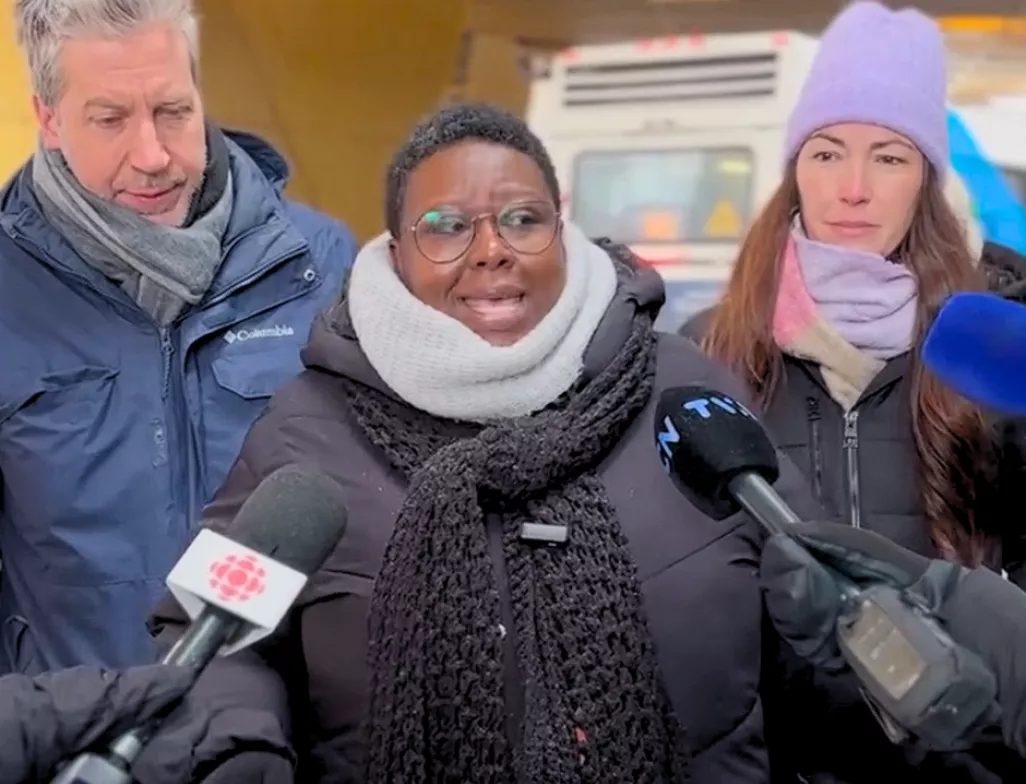Acting to support the most vulnerable households in the face of the housing crisis, the city of Montreal is announcing an investment of nearly $1.5 million over three years to step up assistance and support for housing committees and tenants' associations working in the city.
With 63% of Montreal's population made up of tenants, the city is stepping up its efforts to provide additional support to its front line. This funding will enable 22 Montreal organisations to improve their work with vulnerable tenants to help them stay in their homes, strengthen their support networks and prevent homelessness. The projects selected will complement existing services that have been shown to be effective, starting on 1 May 2025. Each of the 22 organisations will receive financial support of $22,725 per year, or $68,175 over three years for each organisation.
"Nearly two-thirds of Montrealers are tenants. In the context of the housing crisis that is hitting us so hard, there is a great need for support, and the organisations working in the field are struggling to meet demand. That's why it was essential for us to do even more to support them. Well rooted in their communities, housing committees and tenants' associations are the front-line services for informing and defending these tenants, supporting them in their efforts and directing them to the appropriate resources," said Benoit Dorais, Vice-Chairman of the Executive Committee and responsible for Finance and Property Assessment, Housing, Property Strategy and Legal Affairs.
"Our Administration is determined to protect tenants' rights and improve the supply of quality housing in Montreal. To achieve this, it is essential to strengthen the capacity of the tenant assistance organisations that are present on the territory to support the most vulnerable households, and guide them to help them enforce their rights. The housing crisis we are experiencing is difficult for many households, and we will continue to act with the objective of ensuring decent housing for all Montrealers," pointed out Despina Sourias, associate councillor for housing, health and protection of the rental housing stock on the executive committee of the city of Montreal.
"Housing committees and tenants' associations play an essential front-line role in informing, supporting and defending tenants. At a time when the demand for housing is steadily increasing, and affordability is on the rise, many are struggling to meet all their needs. The support of the City of Montreal is very welcome, and could offer some respite to many of them. To better respond to the scale of the needs, the Quebec government needs to increase funding for the mission of community organizations, as well as structural measures such as multi-year funding for more social housing and the introduction of rent control," said FRAPRU spokesperson Véronique Laflamme.
This investment is part of the Loger + series of measures in the Montréal 2030 strategic plan and the Solidarity, Equity and Inclusion Plan 2021-2025, which reaffirm the city's commitment to meeting the housing needs of its residents.
About Loger +
Loger + is a series of robust measures put in place to enable the city to house more Montrealers, focusing on the construction of new units and the protection of existing affordable units. Improving administrative processes, enhancing support for NPOs to accelerate social and affordable housing, and increasing densities are at the heart of the means used by the city of Montreal to respond to the housing crisis. These measures will provide concrete, tailored responses to the recommendations of the Chantier Montréal abordable, which was set up by the city to bring together the driving forces in housing from the private and community sectors.
SOURCE City of Montréal - Office of the Mayor and Executive Committee



